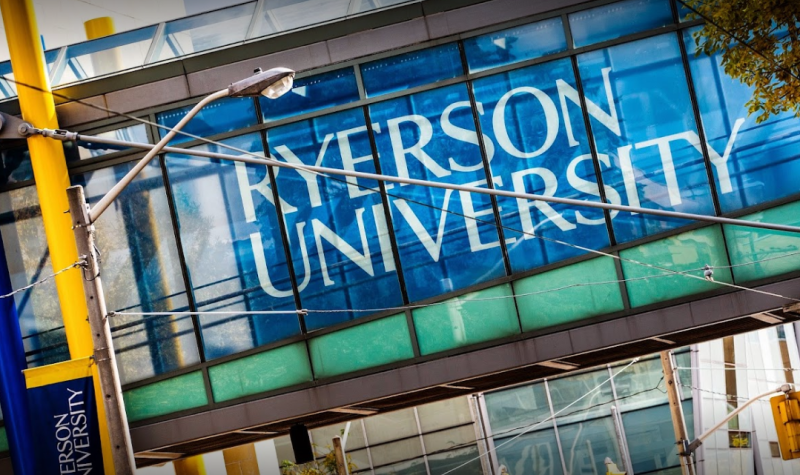This is the final week for members of Ryerson University's community to submit their suggestions for a proposed name change of the school.
The survey's deadline was on Dec. 7 for the online submission, while suggestions sent to the university by mail will continue to be counted and considered.
Ryerson announced on Aug. 26 that its name will be changed.
Since launching the New Chapter plan in late August as part of the Standing Strong Task force report, the university created the survey to find a new name, ensuring the community's voice is at the forefront.
“It’s time to write the next chapter together," the survey page description reads. "The university has launched an engagement period during which we invite all community members to share ideas, opinions and perspectives on our new name.We invite all community members to connect with their networks to encourage participation in the survey and to share news and information throughout the renaming process."
The expectation is to choose a name that will be more inclusive and free from Canada’s colonial past, according to the survey website.
Since September 2020, the 14-member task force comprises of students, staff, alumni, and professionals from diverse fields.
The task force was created to discuss the legacy of Egerton Ryerson, the school’s namesake, and to seek reconciliation with Indigenous communities.
A press release from university, President Mohamed Lachemi stated that the school intends to have a framework of a name change plan by January 2022.
The school’s board of governors accepted 22 recommendations from the Standing Strong Task Force that were outlined in a new report.
This past summer, CJRU outlined the specific details in the report, including the Ryerson namesake being recognized as a symbol of colonialism, and that the school’s identity cannot be disentangled from separate schools, segregation, and the genocide of Indigenous Peoples.
Also, the name Ryerson does not reflect the values that define the school, and therefore a university rename is recommended through a process that engages with community members and stakeholders.
Task force co-chairs Catherine Ellis and Joanne Dallaire, also wrote to the school community this fall when the report and its recommendations were accepted by the university.
“To reach our recommendations, we sought guidance and knowledge," the reports reads. "We learned from and worked with scholars, elders, historians, traditional knowledge keepers, archivists and various subject-matter experts. We heard from over 11,000 students, faculty, staff, alumni and others about both Egerton Ryerson’s legacy and how they felt commemoration should be guided at the university. Our hope is that everyone who reads our report finds joy in learning, sees themselves represented and joins us in optimism for our university’s next chapter.”
Changing the name of the university, as well as removing the legacy of Egerton Ryerson traces back to 2018, when more details emerged of his involvement in the creation of Canada’s Residential School system.
That year, after extensive consultations, the university released the Truth and Reconciliation at Ryerson: Building a Foundation for Generations to Come report.
A plaque acknowledging and outlining Egerton Ryerson’s involvement in the development of Residential schools was unveiled beside his statue.
As reported earlier this year, steps towards the statue’s removal and a name change were intensified in the summer when the remains of 215 Indigenous children were found in unmarked graves near a former Kamloops, B.C. residential school in May.
Since the discovery, the statue of Egerton Ryerson was removed following a period of protests on June 6.
Lachemi expects the action plan for the name change to be referred to the school’s senate prior to implementation in 2022.
Formal requests for comment from Lachemi and the task force’s two co-chairs were made prior to this episode.
No response was given at this time.
More details to follow.
Listen to the CJRU news update here:


